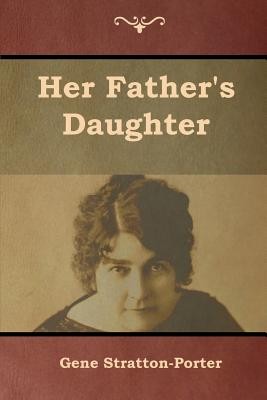
- We will send in 10–14 business days.
- Author: Gene Stratton-Porter
- Publisher: IndoEuropeanPublishing.com
- ISBN-10: 1644390787
- ISBN-13: 9781644390788
- Format: 15.2 x 22.9 x 1.7 cm, softcover
- Language: English
- SAVE -10% with code: EXTRA
Reviews
Description
Her Father's Daughter (1921), one of Stratton-Porter's last novels, was set in southern California, outside Los Angeles, where she had moved around 1920. The novel is especially biased against immigrants of Asian descent. Judith Reick Long, one of Stratton-Porter's biographers, stated that World War I-era racial prejudice and nativism were prevalent in the United States and it was not unusual to be anti-Asian in southern California at that time. Barbara Olenyik Morrow, another of her biographers, explained that the book was intentionally playing to the era's ethnic prejudices. The Literary Review, ignoring its anti-Asian content, noted its "wholesome charm."
EXTRA 10 % discount with code: EXTRA
The promotion ends in 17d.04:32:55
The discount code is valid when purchasing from 10 €. Discounts do not stack.
- Author: Gene Stratton-Porter
- Publisher: IndoEuropeanPublishing.com
- ISBN-10: 1644390787
- ISBN-13: 9781644390788
- Format: 15.2 x 22.9 x 1.7 cm, softcover
- Language: English English
Her Father's Daughter (1921), one of Stratton-Porter's last novels, was set in southern California, outside Los Angeles, where she had moved around 1920. The novel is especially biased against immigrants of Asian descent. Judith Reick Long, one of Stratton-Porter's biographers, stated that World War I-era racial prejudice and nativism were prevalent in the United States and it was not unusual to be anti-Asian in southern California at that time. Barbara Olenyik Morrow, another of her biographers, explained that the book was intentionally playing to the era's ethnic prejudices. The Literary Review, ignoring its anti-Asian content, noted its "wholesome charm."


Reviews